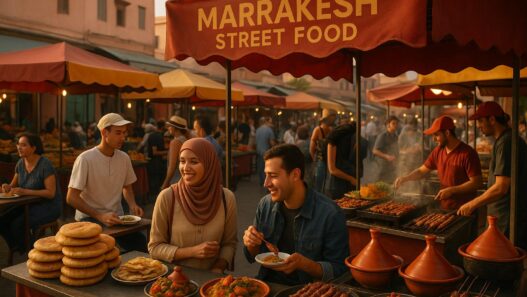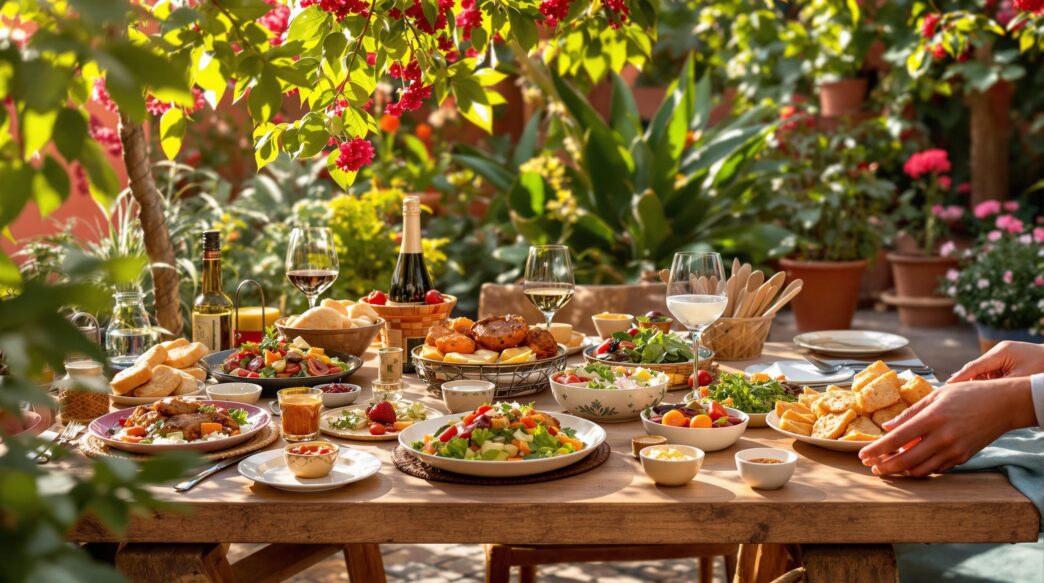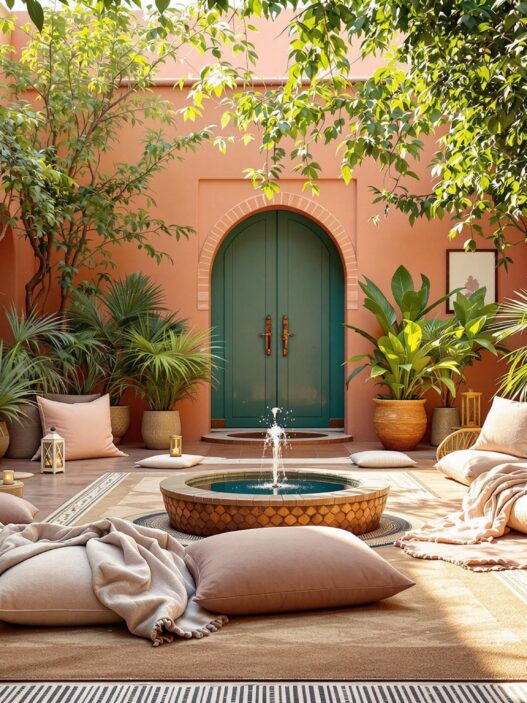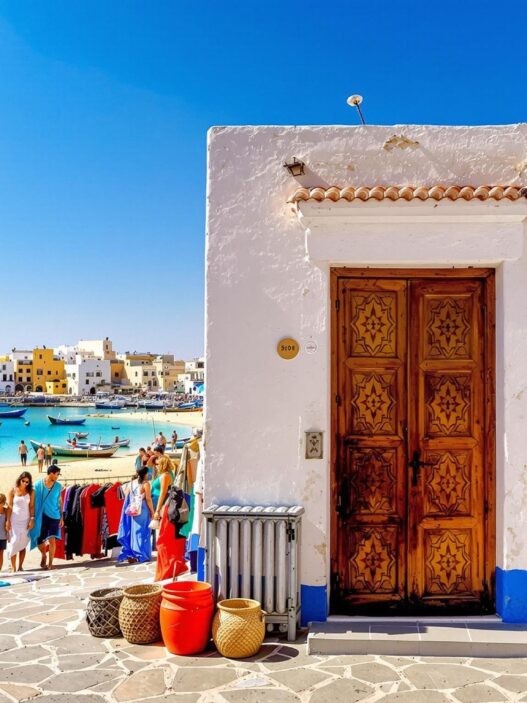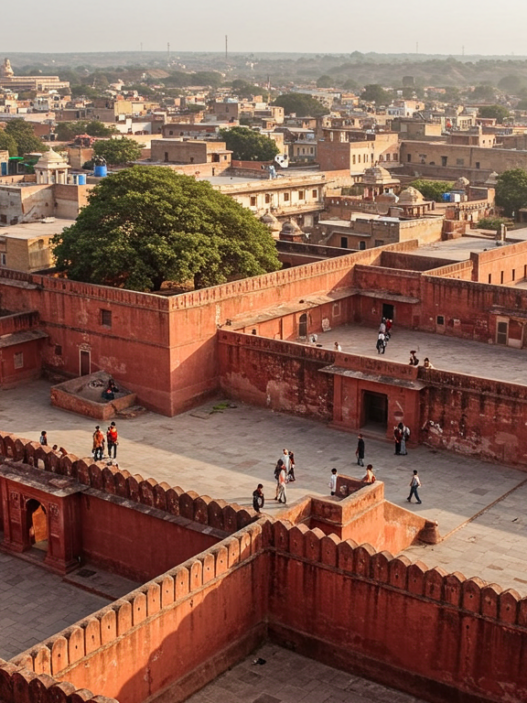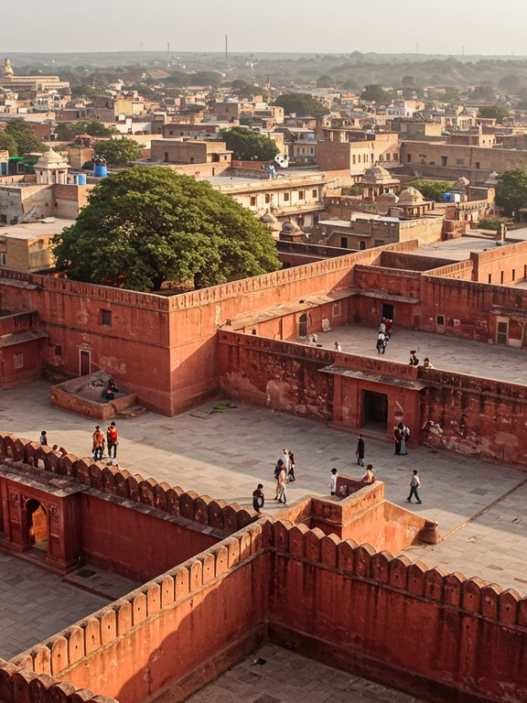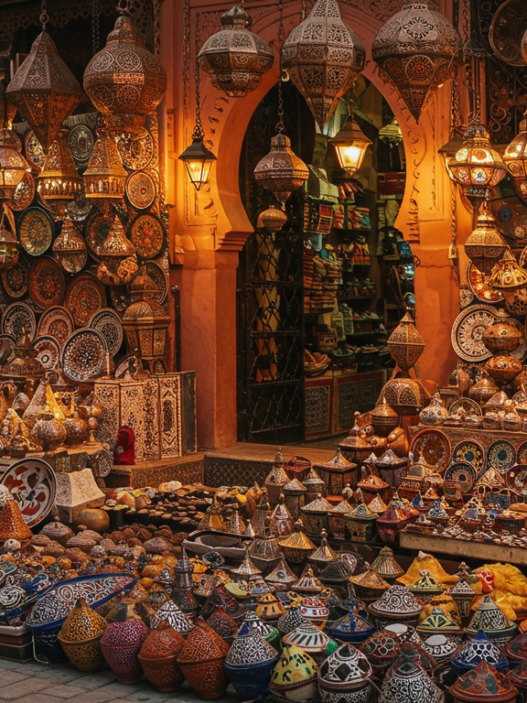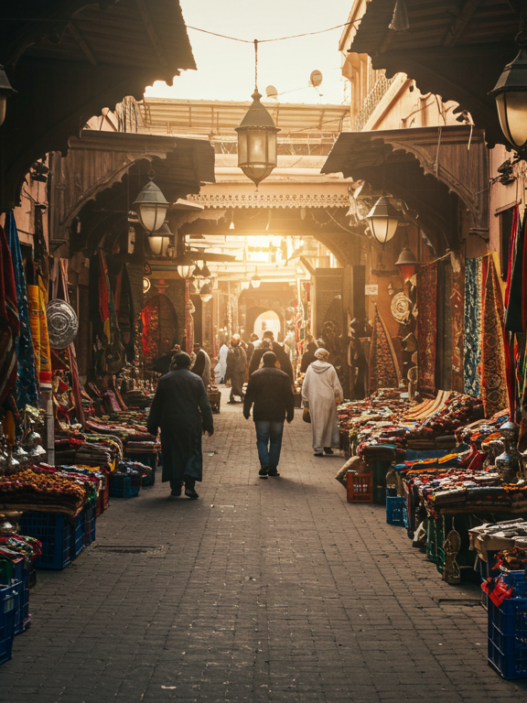- Support Local Communities: Choose restaurants that use locally sourced ingredients like Taliouine saffron or Zerradoun salt. This strengthens the local economy and reduces environmental impact.
- Sustainability Matters: Look for places practicing waste reduction (like composting or portion control) and eco-friendly initiatives (e.g., La Sultana’s on-site water production and organic gardens).
- Top Ethical Spots: Visit Henna Cafe (profits fund local education), La Sultana Marrakech (Green Key certified since 2016), or Erg Chigaga Desert Camp (daily fresh produce from nearby villages).
- Tips for Visitors: Respect local customs (e.g., finishing your plate), carry reusable items to minimize waste, and research a restaurant’s sourcing practices before dining.
What Ethical Sourcing Means for Dining
Ethical sourcing in Marrakesh’s dining scene prioritizes responsible food practices that not only support local communities but also help preserve culinary heritage and reduce environmental impact.
Using Local Ingredients in Marrakesh
In Marrakesh, sourcing local ingredients plays a key role in ethical dining. For instance, La Sultana Marrakech champions this with its ‘Terroir Cuisine.’ They source saffron from Taliouine, salt from Zerradoun, and cumin from Alnif, creating a direct link between farmers and diners [2]. This approach not only reduces emissions but also strengthens the local economy. Similarly, Erg Chigaga desert camp relies on daily ingredient deliveries from nearby villages, reinforcing the importance of local connections [3].
But ethical dining in Marrakesh doesn’t stop at sourcing. Many restaurants are taking extra steps to ensure their operations are as environmentally friendly as possible.
How Restaurants in Marrakesh Stay Sustainable
La Sultana Marrakech stands out with its eco-conscious initiatives. They offer organic breakfast menus, produce water on-site to cut down on plastic waste, and maintain an organic garden to minimize transportation emissions. Their Green Key certification, held since 2016, highlights their dedication [2]. Other restaurants are also adopting practices like composting food waste, using energy-efficient appliances, and conserving water. These efforts show that ethical sourcing goes hand-in-hand with sustainable restaurant operations.
Such practices are shaping Marrakesh into a destination where sustainability meets exceptional dining experiences.
Best Places for Ethical Dining in Marrakesh
Vegan and Vegetarian Dining Options
Broc The Kasbah and Mandala Society are at the forefront of Marrakesh’s plant-based dining scene. They serve creative dishes made with locally sourced ingredients and prioritize reducing waste. Both work closely with small-scale farmers, blending eco-conscious practices with standout vegan and vegetarian meals. Similarly, Riad Cinnamon pairs its plant-based menu with eco-friendly efforts like composting and energy-saving kitchen practices.
Henna Cafe: Food and Community Support
Henna Cafe combines delicious dining with meaningful community impact. Profits from their menu of locally sourced Moroccan dishes fund free education programs for the local community, making it a place where your meal directly supports a good cause.
Dining Sustainably at Erg Chigaga Desert Camp

Erg Chigaga Desert Camp offers a one-of-a-kind dining experience in the desert, all while keeping sustainability in focus. Here’s how they do it:
| Dining Option | Description | Sustainability Features |
|---|---|---|
| Private Dune Dining | Intimate meals in the dunes with fresh produce | Ingredients sourced daily from local villages |
| Restaurant Tent | Traditional dishes served in a cozy setting | Portion control to reduce food waste |
| Nomadic Feasts | Outdoor meals under the stars | Composting practices for leftover food |
"Our chef visits local villages daily to purchase fresh produce directly from farmers, ensuring that meals are made with the freshest and most flavorful ingredients available while supporting the local economy" [3]
For a more refined experience, La Sultana Marrakech showcases how fine dining can align with eco-conscious values. Their approach includes:
"We commit to reusable, compostable, or eco-friendly products and ban imported goods (except cosmetics such as Clarins & Darphin)" [2]
The restaurant has raised the bar by ensuring at least half of their breakfast menu is organic, including their coffee [2].
These spots highlight how Marrakesh seamlessly combines sustainability, tradition, and creativity in its ethical dining options, making it a destination for conscious travelers. Up next, learn how you can make thoughtful dining choices during your visit.
How to Make Sustainable Dining Choices in Marrakesh
Respecting Local Food Customs
Making thoughtful dining choices in Marrakesh starts with honoring local traditions. For instance, in traditional settings, it’s customary to eat with your right hand and finish all the food on your plate. This not only shows respect but also helps minimize food waste.
Take La Sultana Marrakech as an example. They source seasonal ingredients from small local producers, blending cultural preservation with mindful dining practices [2].
Cutting Down on Waste When Eating Out
You can reduce waste by choosing restaurants that prioritize local sourcing, manage portions carefully, and limit packaging. Carry reusable bottles and utensils to steer clear of single-use plastics. Some places, like La Sultana Marrakech, go the extra mile with features like in-house water production and energy-efficient systems [2].
Do a little research before dining out – ask about a restaurant’s sourcing and sustainability practices. Many spots committed to these efforts are happy to share their initiatives with diners who care about making eco-friendly choices.
sbb-itb-fa26f1f
Why Supporting Local Restaurants Matters
Choosing to dine at local restaurants in Marrakesh helps preserve culinary traditions, boosts the local economy, and supports small-scale farmers. These decisions lead to job creation, keep businesses thriving, and minimize the impact on the environment by relying on shorter supply chains. Spending money locally ensures it stays within the Marrakesh community, fostering an economic cycle that benefits everyone in the region.
Examples of Businesses Helping the Community
Several restaurants in Marrakesh go beyond serving food by actively giving back to their communities. For instance, Henna Cafe provides free education programs for local women [1]. Erg Chigaga Desert Camp contributes to village economies by sourcing locally and adopting sustainable practices [3]. Meanwhile, La Sultana highlights Moroccan craftsmanship and local produce across its restaurants, hotel boutiques, and spas [2].
"Morocco is our home and we constantly make sure that our restaurants serve only local produce, the hotel boutiques stock products from local artisans and our Spas use locally made products, to be true to ourselves and provide a strong sense of place for our guests." – La Sultana [2]
Resources for Ethical Travel in Marrakesh
Making responsible dining choices in Marrakesh becomes easier with access to reliable resources. These tools can guide you toward restaurants and hotels that prioritize local customs, community support, and eco-conscious practices.
Local Tourism Certification Programs are a great starting point. Look for restaurants and hotels with certifications that confirm their commitment to sustainable operations. These certifications can help you identify places that genuinely care about their environmental impact.
Restaurant Websites and Social Media provide valuable insights into how establishments source their ingredients and contribute to the community. Many ethical businesses highlight their initiatives and values online, giving you a closer look at their efforts.
Here’s a quick overview of helpful resources:
| Resource Type | Purpose | Examples |
|---|---|---|
| Environmental Certifications | Verify eco-friendly practices | Green Key certification |
| Online Resources | Offer reviews and detailed information | The Marrakesher, restaurant websites |
| Community Organizations | Track social impact initiatives | Local sustainability programs |
Why Use The Marrakesher?

For English-speaking travelers, The Marrakesher is an excellent guide to ethical dining in Marrakesh. What sets it apart is its focus on sustainable dining, providing:
- Detailed reviews of restaurants’ environmental efforts
- Exclusive interviews with local owners about their sustainability goals
- Seasonal updates on responsible dining trends
- Practical tips for enjoying authentic and mindful dining experiences
"Morocco is our home and we constantly make sure that our restaurants serve only local produce, the hotel boutiques stock products from local artisans and our Spas use locally made products, to be true to ourselves and provide a strong sense of place for our guests." – La Sultana [2]
Conclusion: Making Conscious Dining Choices
Dining in Marrakesh isn’t just about savoring delicious food – it’s also an opportunity to support the local community and environment. For instance, using at least 50% organic ingredients in breakfast offerings and holding a Green Key certification since 2016 shows how some establishments seamlessly combine ethical practices with quality dining [2].
Ethical dining here blends respect for the environment with an appreciation for local culture. Restaurants like La Sultana, with their "Terroir Cuisine" philosophy, focus on seasonal, locally sourced ingredients. By choosing such places, you not only enjoy authentic flavors but also help boost the local economy [2].
"Morocco is our home and we constantly make sure that our restaurants serve only local produce, the hotel boutiques stock products from local artisans and our Spas use locally made products, to be true to ourselves and provide a strong sense of place for our guests." – La Sultana [2]
Ethical dining also means supporting social initiatives. For example, Henna Cafe uses its proceeds to fund free education programs for local residents, allowing visitors to make a direct impact on the community [1].
Sustainability goes beyond the food itself. La Sultana’s water production unit is a great example of how restaurants can cut down on plastic waste and reduce transportation impacts [2]. As you explore Marrakesh’s vibrant culinary scene, let your dining choices reflect a commitment to both the environment and the people who call the city home. You can enjoy incredible meals while contributing to a more sustainable and inclusive future.



